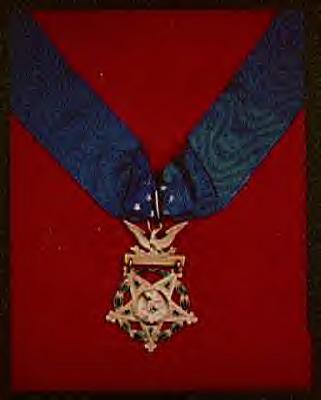|
|
Canku Ota |
|
|
(Many Paths) |
||
|
An Online Newsletter Celebrating Native America |
||
|
August 11, 2001 - Issue 42 |
||
|
|
||
|
The Code Talkers Bring Home Importance of Language |
||
|
by Dorreen Yellow Bird Grand Forks Herald-July 28, 2001 |
 Language is
the vehicle we use to touch the mind and heart of others. Language is
the vehicle we use to touch the mind and heart of others. There is a concern in "Indian Country" that some of the Native American languages will be lost soon. Many others are in danger of being lost. Those languages contain a lot of our identity -- who we are and how we think. In some tribal nations, you cannot participate in a ceremony unless you know the language - it is that important. One language - Navajo - helped win World War II. In a one-hour ceremony Thursday at the Capitol Rotunda, President Bush gave four of the five living Navajo Marines the Congressional Gold Medal because they helped the military communicate by using a code that the Japanese couldn't break. The Navajo language helped win the war. The "Code Talkers," as they now are called, came from Navajo country to Washington, D.C to receive their medals. Also 300 successors of those Code Talkers received silver medals. My sister was married to a Navajo for some 30 years. They had five children and lived in Navajo country, or the Southwest, most of their lives. She worked with one of the Code Talkers at Many Farms, Ariz. She said he was very casual about his role as a Code Talker in World War II. All they wanted us do was to talk to each other in Navajo, he told her. He didn't see that as anything important. He would say to another Navajo what they told him to say, and that person would interpret to a military officer somewhere in the middle of the war. Much easier than fighting, he thought. What they didn't realize until much later was complexity of the language didn't allow the Japanese to decode their messages. She said in the 40 years that she lived on the Navajo reservation in Arizona and New Mexico, she never really learned the language, even though her husband spoke Navajo fluently. She said it is difficult. When you say words such as nose, mouth or chest, the word is the same. In each word there might be a different inflection that can change the word from nose to chest. Her children are not fluent but do know words. Her husband was selected as one of those Code Talkers but later was eliminated because he was too young, she said. Even though my father spoke fluent Sahnish (Arikara), Lakota, Dakota, Hidatsa and Mandan, he only tried to teach his children later in life. My father would be more than 100 years old if he were alive today. We did learn words from my grandmother, uncles and aunts and some from him, but we never were fluent. It wasn't until we were older that we started learning the language. It is much easier to learn a language when you are a child. My daughter and son-in-law are teaching my grandchildren Sahnish and Muscogee (Creek) - Sahnish by tape and Muscogee from him. They already can respond to him in simple sentences. My mother understands the language, but always speaks English, as she was taught to do. The strong mandate by the federal government for tribes to foresake their language was part of assimilating the tribes into non-Native life. My father didn't teach us because he thought it would be easier for us to live in an English-speaking world if English was our first language. And he didn't want us to be disciplined to speaking the language, either. I study the language when I am driving. I find Lakota and Dakota easier to pronounce. Sahnish is more difficult, but when I can't pronounce a word, I think back and listen to my grandmother. She spoke more Sahnish than English and listening to her from my memory usually helps. Those Coder Talkers Congressional gold medals should be reminders to tribal nations of how important Native languages are and a reminder that we need to teach our children - if it is only by tape and a prayer. Yellow Bird writes columns on Tuesdays and Saturdays. Reach her at 780-1228, (800) 477-6572 ext. 228 or dyellowbird@gfherald.com. |
|
|
||
|
|
||
| Canku Ota is a free Newsletter celebrating Native America, its traditions and accomplishments . We do not provide subscriber or visitor names to anyone. Some articles presented in Canku Ota may contain copyright material. We have received appropriate permissions for republishing any articles. Material appearing here is distributed without profit or monetary gain to those who have expressed an interest. This is in accordance with Title 17 U.S.C. section 107. | ||
|
Canku Ota is a copyright © 2000, 2001 of Vicki Lockard and Paul Barry. |
||
|
|
|
|
|
The "Canku Ota - A Newsletter Celebrating Native America" web site and its design is the |
||
|
Copyright © 1999, 2000, 2001 of Paul C. Barry. |
||
|
All Rights Reserved. |
||
